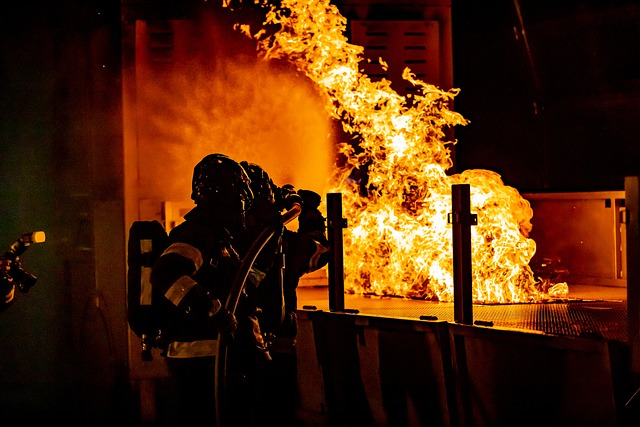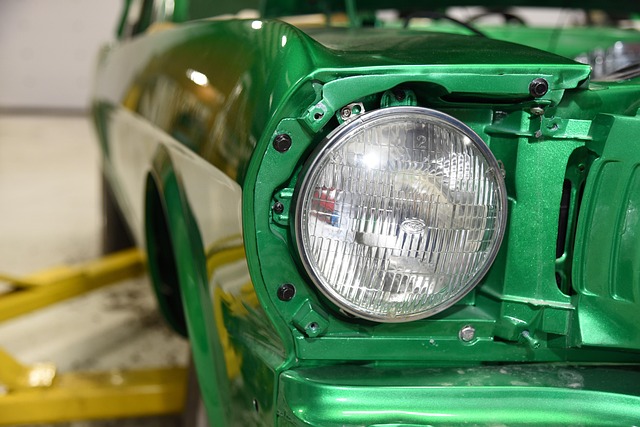Heating systems require regular maintenance to prevent costly emergency repairs. Check for leaks, proper air circulation, and filter inspection annually. DIY troubleshooting for basic issues like power problems or thermostat settings can save costs. For complex problems like faulty gas lines, seek professional help from a Bromsgrove emergency plumber. Proactive measures like routine inspections and cleaning extend heater lifespans and energy efficiency.
Stranded in the cold due to a faulty heater? Don’t worry, this guide has you covered. We’ll help you navigate through emergency heating repairs without breaking the bank. From understanding common issues and quick fixes to budget-friendly solutions and DIY troubleshooting, we’ve got you prepared. Learn when it’s time to call a professional and discover long-term savings through preventive measures. Stay cozy with our comprehensive approach to emergency heating repair.
- Understanding Common Heating Issues and Quick Fixes
- Budget-Friendly Solutions for Emergency Repairs
- DIY Troubleshooting: A Step-by-Step Guide
- When to Call a Professional: Expert Intervention
- Preventive Measures: Saving Money Long-Term
Understanding Common Heating Issues and Quick Fixes

Heating systems are complex and often subject to various issues that can cause discomfort and financial strain. Understanding common problems and their quick fixes is essential for homeowners, as it enables them to address minor issues before they escalate into costly emergency repairs. One of the most frequent concerns is a sudden loss of heat, which could be due to faulty wiring, a broken thermostat, or an inefficient heating element. Identifying these issues early on through regular preventative heater maintenance can save you from unexpected bills.
Instead of waiting for a cold snap to strike, focus on routine temp control system troubleshooting. This involves checking for leaks in ducts or pipes, ensuring proper air circulation, and inspecting the condition of your heater’s filters. By taking proactive measures, you can reduce the need for best emergency heating services, making it easier on your wallet and helping maintain a comfortable living environment throughout the year.
Budget-Friendly Solutions for Emergency Repairs

In the face of an emergency heating repair, it’s natural to feel a pinch in your wallet. However, there are numerous budget-friendly solutions that can get your home warm again without breaking the bank. Start by identifying the common reasons for heater breakdown; issues like a faulty thermostat, a blocked heat exchanger, or a leaking duct can often be addressed with simple fixes or replacement parts that won’t put a significant dent in your budget. Many hardware stores offer do-it-yourself kits and repair manuals tailored to specific models of heaters, such as boilers, making repairs more accessible and cost-effective.
Additionally, consider calling on local heating specialists who provide emergency services at competitive rates. Often, these professionals can diagnose the problem quickly, offering both temporary solutions and long-term fixes. Remember that preventing future breakdowns through regular maintenance is key to saving money in the long run. Preventative measures like cleaning or replacing air filters, inspecting for leaks, and ensuring proper ventilation can help keep your heating system running smoothly and efficiently, avoiding costly unexpected repairs, including why is my heater not working issues.
DIY Troubleshooting: A Step-by-Step Guide

Before calling in the experts, it’s worth trying some DIY troubleshooting for your emergency heating repair. Start by checking the power supply to your heater—a tripped circuit breaker or blown fuse could be the culprit. Once confirmed, reset the breaker or replace the fuse and see if the heater turns on. If not, move on to inspecting the thermostat settings; incorrect temperature readings can prevent the heater from kicking in. Ensure it’s set to ‘Heat’ and the desired temperature is reached.
For faulty electric heaters, identify potential issues like loose connections, damaged heating elements, or malfunctioning thermostats. These are common causes of what causes heater failure. If you’re comfortable using basic tools and have some expert advice on heater repairs, you might be able to fix a faulty element or replace a thermostat yourself. However, if the problem seems more complex, it’s best to contact a professional for safety and effective solutions.
When to Call a Professional: Expert Intervention

If your heating system suddenly stops working during a cold snap, it’s natural to want to try and fix it yourself. However, there are times when DIY just isn’t enough, and it’s crucial to know when to call in an expert for emergency heating repair. While some minor issues like cleaning air filters or replacing thermostats can be tackled by homeowners, complex problems with your furnace, boiler, or heater require the skill and knowledge of a professional. An expert advice on heater repairs from a reliable emergency plumber Bromsgrove can help diagnose issues accurately and provide long-lasting solutions.
Gas furnace repair tips are readily available online, but these self-help guides often only scratch the surface. Major heating issues such as faulty gas lines, damaged heat exchangers, or electrical malfunctions need to be handled by specialists who possess the right tools and training. Calling in an emergency plumber Bromsgrove ensures that your home stays safe, comfortable, and warm during unexpected breakdowns, preventing further damage and costly repairs down the line.
Preventive Measures: Saving Money Long-Term

Preventive measures can save you significant money in the long run when it comes to emergency heating repairs. Regular maintenance is key; scheduling routine inspections and cleaning can extend the lifespan of your heater, reducing the need for frequent repairs or costly replacements. A simple step like checking and sealing ductwork can prevent air leaks, ensuring efficient heat distribution and lower energy bills.
By taking proactive steps, such as troubleshooting basic heater problems yourself using online resources or manuals, you might avoid unnecessary call-outs. For instance, fixing a leaky heating duct not only reduces energy waste but also prevents the buildup of dust and allergens, creating a healthier indoor environment. These measures empower you to take control of your heating system’s health, ensuring it operates optimally and cost-effectively.
In conclusion, navigating emergency heating repairs doesn’t have to be costly. By understanding common issues, trying budget-friendly solutions, and even tackling basic troubleshooting yourself, you can save money without compromising comfort. However, knowing when to call a professional is crucial for more complex problems. Implementing preventive measures will ultimately help you avoid expensive repairs in the long term, ensuring your heating system runs smoothly and efficiently.
